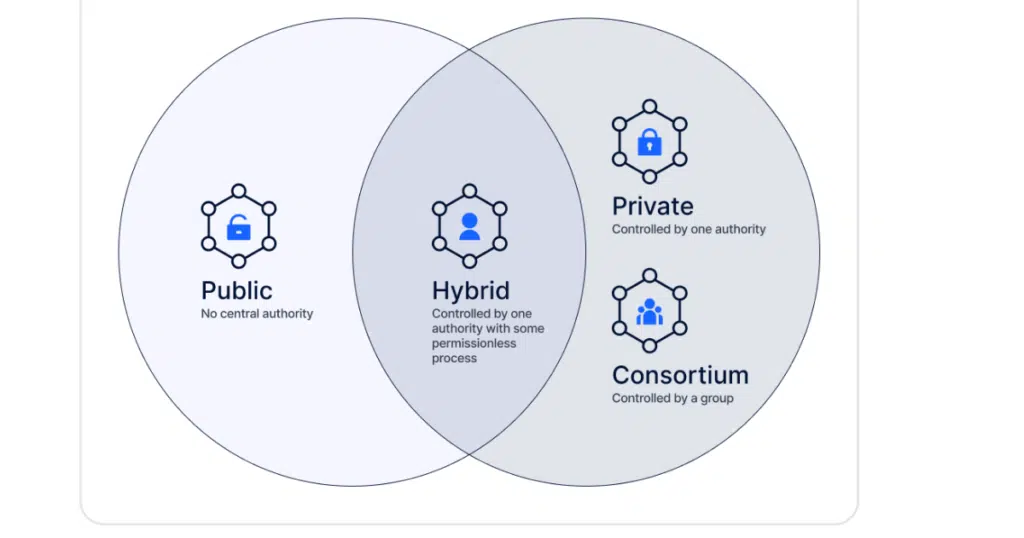Understanding Consortium Blockchains
A consortium blockchain refers to a type of blockchain that is created and utilized by a group of corporations seeking the benefits of a distributed ledger while finding public, permissionless blockchains unsuitable for their specific requirements.

Open and Decentralized Networks
Public blockchains like Bitcoin (BTC) and Ethereum (ETH) are the original and most well-known type.
They operate permissionless and decentralized, allowing anyone to access and participate in their networks.
On the other hand, private blockchains are designed by corporations exclusively for internal use.
They are not open to external entities and are typically managed centrally.
Collaborative and Semi-Decentralized Networks
Consortium blockchains bridge the gap between these two types.
They are collectively developed by groups of companies that want to utilize a shared, decentralized network that is inaccessible to entities outside the consortium.
Consortium blockchains offer a certain level of decentralization compared to private blockchains.
All participating companies within the network are independent and collaborate as equals, ensuring no single node can exert dominance over others.